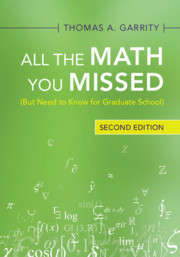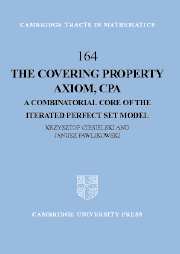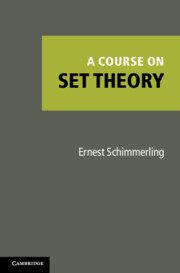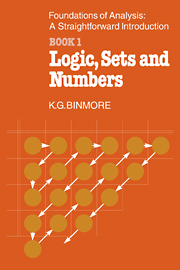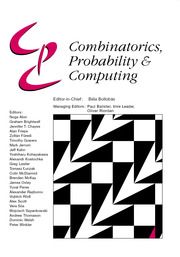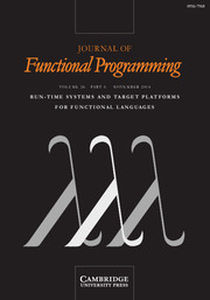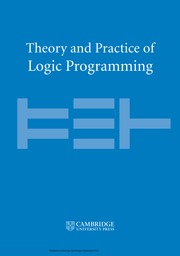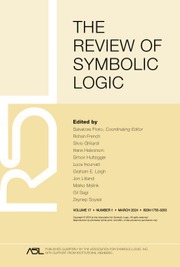
Set Theory for the Working Mathematician
$59.99 ( ) USD
Part of London Mathematical Society Student Texts
- Author: Krzysztof Ciesielski, West Virginia University
- Date Published: July 2013
- availability: This ISBN is for an eBook version which is distributed on our behalf by a third party.
- format: Adobe eBook Reader
- isbn: 9781107108899
Find out more about Cambridge eBooks
$
59.99 USD
( )
Adobe eBook Reader
Other available formats:
Paperback, Hardback
Looking for an examination copy?
If you are interested in the title for your course we can consider offering an examination copy. To register your interest please contact [email protected] providing details of the course you are teaching.
-
This text presents methods of modern set theory as tools that can be usefully applied to other areas of mathematics. The author describes numerous applications in abstract geometry and real analysis and, in some cases, in topology and algebra. The book begins with a tour of the basics of set theory, culminating in a proof of Zorn's Lemma and a discussion of some of its applications. The author then develops the notions of transfinite induction and descriptive set theory, with applications to the theory of real functions. The final part of the book presents the tools of "modern" set theory: Martin's Axiom, the Diamond Principle, and elements of forcing. Written primarily as a text for beginning graduate or advanced level undergraduate students, this book should also interest researchers wanting to learn more about set theoretical techniques applicable to their fields.
Read more- Large number of examples for the basic techniques
- Applications to other areas of mathematics
- Simple presentation of modern methods
Reviews & endorsements
"The book contains a large amount of interesting and well-presented material on transfinite recursion and transfinite induction and a very good introduction to Martin's axiom. The short discussion of forcing can give the reader a first glimplse at the method. The treatment of mathematical logic is too sketchy to be of any realuse and may be a source of confusion." Journal of Symbolic Logic
See more reviews"...a very valuable resource for the working mathematician. Postgraduates and established researchers in many (perhaps all) areas of mathematics will benefit from reading it." Proceedings of the Edinburgh Mathematical Society
Customer reviews
Not yet reviewed
Be the first to review
Review was not posted due to profanity
×Product details
- Date Published: July 2013
- format: Adobe eBook Reader
- isbn: 9781107108899
- availability: This ISBN is for an eBook version which is distributed on our behalf by a third party.
Table of Contents
Part I. Basics of Set Theory:
1. Axiomatic set theory
2. Relations, functions and Cartesian product
3. Natural, integer and real numbers
Part II. Fundamental Tools of Set Theory:
4. Well orderings and transfinite induction
5. Cardinal numbers
Part III. The Power of Recursive Definitions:
6. Subsets of Rn
7. Strange real functions
Part IV. When Induction is Too Short:
8. Martin's axiom
9. Forcing
Part V. Appendices: A. Axioms of set theory
B. Comments on forcing method
C. Notation.
Sorry, this resource is locked
Please register or sign in to request access. If you are having problems accessing these resources please email [email protected]
Register Sign in» Proceed
You are now leaving the Cambridge University Press website. Your eBook purchase and download will be completed by our partner www.ebooks.com. Please see the permission section of the www.ebooks.com catalogue page for details of the print & copy limits on our eBooks.
Continue ×Are you sure you want to delete your account?
This cannot be undone.
Thank you for your feedback which will help us improve our service.
If you requested a response, we will make sure to get back to you shortly.
×
